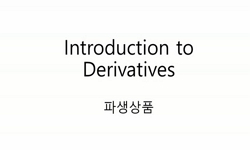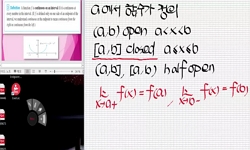이 글은 2019년 9월에 내려진 「서울고등법원 2019. 9. 26. 선고 2016나2063874 판결」의 평석이다. 이 사건은 이사의 책임을 묻는 대표소송인데, 원심판결이 내려졌을 때 이미 몇 분의 학자들이 평...
http://chineseinput.net/에서 pinyin(병음)방식으로 중국어를 변환할 수 있습니다.
변환된 중국어를 복사하여 사용하시면 됩니다.
- 中文 을 입력하시려면 zhongwen을 입력하시고 space를누르시면됩니다.
- 北京 을 입력하시려면 beijing을 입력하시고 space를 누르시면 됩니다.

경영권 방어비용에 관한 이사의 책임 - 서울고등법원 2019. 9. 26. 선고 2016나2063874 판결 - = Director’s liability for the corporate expense related to defense for control over a subsidiary
한글로보기https://www.riss.kr/link?id=A106952735
- 저자
- 발행기관
- 학술지명
- 권호사항
-
발행연도
2020
-
작성언어
-
-
주제어
이사의 감시의무 ; 이사의 책임 ; 이사의 이해상충 ; 순환출자 ; 총수익 교환스왑 ; 파생상품 ; 현대그룹 ; 현대상선 ; 현대엘리베이터 ; Total Return Swap ; TRS ; director’s duty of care ; director’s liability ; conflict of interest ; circular ownership ; derivatives ; Hyundai group
-
등재정보
KCI우수등재
-
자료형태
학술저널
-
수록면
420-459(40쪽)
- 제공처
- 소장기관
-
0
상세조회 -
0
다운로드
부가정보
국문 초록 (Abstract)
이 사건은 최근 20년 가까이 현대엘리베이터(주)(이하 “HE”)의 지배권을 두고 다투어 왔던 제1 및 제2 대주주간의 싸움이기도 하다. HE가 실질적인 子會社인 현대상선(주)(이하 “HS”)이 적대적 인수의 위협을 받는 상황에서 자신의 경영권을 유지하기 위해 HS의 주식을 기초자산으로 한 파생상품계약을 체결하여 의결권을 확보하였다. 하지만 HS 주가의 하락으로 인해 HE가 同 파생상품거래에서 손해를 입게 되자, 제2대주주가 파생상품거래를 승인하고 집행한 HE의 이사들과 HE의 이사 겸 지배주주인자의 책임을 물은 대표소송이다.
법원은 1) 이사들이 파생상품거래로 인한 손해의 원인이 된 주가하락을 예측하지 못한 데 과실을 인정하였으며, 2) 그 파생상품거래는 HE가 HS에 대해 가지고 있는 경영권(지배권)을 방어하기 위한 것이었으나, HE가 속한 현대그룹의 순환출자구조의 특성상 HE의 경영권방어행위는 동시에 지배주주의 그룹지배권의 방어를 목적으로 한다는 점, 그로 인해 HE의 이사들에게 회사 및 소액주주의 이익을 고려할 특수한 주의의무가 생긴다는 점을 전제로 설정하고, 이사들이 이러한 주의를 게을리하였음을 인정하였다. 3) 이 경영권방어행위와 관련하여 지배주주는 HE와 이해상충의 관계에 있다고 보고, HE의 파생상품거래를 중지시키기 위한 감시의무를 게을리하였음을 이유로 지배주주겸 이사에게 손해배상책임을 과하였다.
筆者는 위 세가지 쟁점에 관해 판결과 반대의 의견을 가지고 판지를 비판하였다. 1) 파생상품손실부분에 관해 경영권방어의 비용으로 보아야 한다는 주장과 함께, 주가하락에 관해 이사들의 과실을 인정하기 어렵다는 점을 이른바 경영판단의 법리에 비추어 논증하였다. 2) 이 판결의 핵심논리를 이루는 순환출자구조의 특성이라는 것을 부정하며, 경영권방어라는 법률적 이익의 귀속에 관한 판단논리를 제시하였다. 3) 상법이 규정하는 이해상충의 개념론에 입각하여 이 사건에서의 지배주주겸 이사가 HE와 이해상충의 관계에 있다고 볼 수 없다는 의견을 제시하고, 그러나 이해상충을 가정할 때 상법이 요구하는 同이사의 주의의무가 무엇인지를 설명하였다.
이 글은 2019년 9월에 내려진 「서울고등법원 2019. 9. 26. 선고 2016나2063874 판결」의 평석이다. 이 사건은 이사의 책임을 묻는 대표소송인데, 원심판결이 내려졌을 때 이미 몇 분의 학자들이 평석을 내 놓을 정도로 회사법 전문가들의 관심을 끈 사건이다. 同 평석에서 제기된 문제를 포함하여 이 판결에서는 몇 가지 중요한 회사법적 쟁점들을 다루며, 기존의 회사법학의 관점에서는 생소한 이론도 제시하고 있어 筆者 역시 관심을 가지고 이 논문을 집필하였다.
이 사건은 최근 20년 가까이 현대엘리베이터(주)(이하 “HE”)의 지배권을 두고 다투어 왔던 제1 및 제2 대주주간의 싸움이기도 하다. HE가 실질적인 子會社인 현대상선(주)(이하 “HS”)이 적대적 인수의 위협을 받는 상황에서 자신의 경영권을 유지하기 위해 HS의 주식을 기초자산으로 한 파생상품계약을 체결하여 의결권을 확보하였다. 하지만 HS 주가의 하락으로 인해 HE가 同 파생상품거래에서 손해를 입게 되자, 제2대주주가 파생상품거래를 승인하고 집행한 HE의 이사들과 HE의 이사 겸 지배주주인자의 책임을 물은 대표소송이다.
법원은 1) 이사들이 파생상품거래로 인한 손해의 원인이 된 주가하락을 예측하지 못한 데 과실을 인정하였으며, 2) 그 파생상품거래는 HE가 HS에 대해 가지고 있는 경영권(지배권)을 방어하기 위한 것이었으나, HE가 속한 현대그룹의 순환출자구조의 특성상 HE의 경영권방어행위는 동시에 지배주주의 그룹지배권의 방어를 목적으로 한다는 점, 그로 인해 HE의 이사들에게 회사 및 소액주주의 이익을 고려할 특수한 주의의무가 생긴다는 점을 전제로 설정하고, 이사들이 이러한 주의를 게을리하였음을 인정하였다. 3) 이 경영권방어행위와 관련하여 지배주주는 HE와 이해상충의 관계에 있다고 보고, HE의 파생상품거래를 중지시키기 위한 감시의무를 게을리하였음을 이유로 지배주주겸 이사에게 손해배상책임을 과하였다.
筆者는 위 세가지 쟁점에 관해 판결과 반대의 의견을 가지고 판지를 비판하였다. 1) 파생상품손실부분에 관해 경영권방어의 비용으로 보아야 한다는 주장과 함께, 주가하락에 관해 이사들의 과실을 인정하기 어렵다는 점을 이른바 경영판단의 법리에 비추어 논증하였다. 2) 이 판결의 핵심논리를 이루는 순환출자구조의 특성이라는 것을 부정하며, 경영권방어라는 법률적 이익의 귀속에 관한 판단논리를 제시하였다. 3) 상법이 규정하는 이해상충의 개념론에 입각하여 이 사건에서의 지배주주겸 이사가 HE와 이해상충의 관계에 있다고 볼 수 없다는 의견을 제시하고, 그러나 이해상충을 가정할 때 상법이 요구하는 同이사의 주의의무가 무엇인지를 설명하였다.
다국어 초록 (Multilingual Abstract)
It is known in the capital market that this lawsuit was the result of a contest for control of Hyundai Elevator Co. (“HE”). This dispute had occurred over the past two decades between the controlling shareholder and the second major shareholder of HE. This is a derivative suit brought by the second shareholder to hold the HE directors liable for HE’s loss from a derivative transaction the HE directors carried out to defend HE’s control over its subsidiary, Hyundai Marine Co. (“HS”), from a hostile merger and acquisition by another corporate group. As the market price of the underlying assets of derivatives, HS shares, had fallen, HE suffered loss from the derivative transaction when the trade was terminated,
The Appellate Court ruled as follows:
1) That the HE directors are liable for the loss from the derivative transaction because they failed to predict that HS share prices would fall as a result of their negligence, 2) That the Hyundai group which both HE and HS belong to is formed by affiliated companies through the circular ownership of shares between them. Because of this organization, the member company’s defense of its control over its affiliated company benefited its controlling shareholder at the same time. Therefore, the directors had a duty to take into account the interests of minority sharehoders and the company instead of supporting the controlling shareholder’s interest. In this case, however, HE’s defense of cointrol over HS didn’t results in any benefit to HE itself, but instead only maintained the controlling shareholder’s control power over the entire group. Therefore, the derivative transaction could not be justified under the business judgment rule. 3) That the controlling shareholder of HE, being a director of HE at the same time, had a duty to monitor the HE officers to prevent corporate loss. Nevertheless, the controlling shareholder neglected her duty as a director by being absent from the board’s resolution to approve the derivative transaction.
The author criticized the court ruling as follows.
For the first issue, the author believed that the court relied on hindsight when it held the directors responsible for the loss caused by the fall of stock prices. This violates the business judgment rule. In addition, the author argued that the loss from the derivative transaction should be recognized as a defense cost to retain control over the affiliated company.
As for second issue, the author argued that HE and its controlling shareholder have a common interest to maintain control over HS. The author also points out that there was no reasonable ground to differentiate between the defense of control by member companies of a corporate group and by general companies.
Lastly, the author noted as to the third issue that the court’s recognition of the controlling shareholder’s liability was on the premise that the court’s ruling on issues 1) and 2) were valid, Since those decisions lacked reasonableness, however, the controlling shareholder should not have been found liable.
This article analyzes a recent ruling of the Seoul Appellate Court (Seoul Appellete Court 2019. 9. 26., 2016NA2063874) which deals with the corporate director’s liability. Since this case contains several interesting corporate law issues, some law s...
This article analyzes a recent ruling of the Seoul Appellate Court (Seoul Appellete Court 2019. 9. 26., 2016NA2063874) which deals with the corporate director’s liability. Since this case contains several interesting corporate law issues, some law students published comments on this case soon after the district court released its decision. As the Appellate Court presented several new theories on critical corporate law issues in its ruling of this case, the author discusses the reasonableness of the Court’s ruling in this article.
It is known in the capital market that this lawsuit was the result of a contest for control of Hyundai Elevator Co. (“HE”). This dispute had occurred over the past two decades between the controlling shareholder and the second major shareholder of HE. This is a derivative suit brought by the second shareholder to hold the HE directors liable for HE’s loss from a derivative transaction the HE directors carried out to defend HE’s control over its subsidiary, Hyundai Marine Co. (“HS”), from a hostile merger and acquisition by another corporate group. As the market price of the underlying assets of derivatives, HS shares, had fallen, HE suffered loss from the derivative transaction when the trade was terminated,
The Appellate Court ruled as follows:
1) That the HE directors are liable for the loss from the derivative transaction because they failed to predict that HS share prices would fall as a result of their negligence, 2) That the Hyundai group which both HE and HS belong to is formed by affiliated companies through the circular ownership of shares between them. Because of this organization, the member company’s defense of its control over its affiliated company benefited its controlling shareholder at the same time. Therefore, the directors had a duty to take into account the interests of minority sharehoders and the company instead of supporting the controlling shareholder’s interest. In this case, however, HE’s defense of cointrol over HS didn’t results in any benefit to HE itself, but instead only maintained the controlling shareholder’s control power over the entire group. Therefore, the derivative transaction could not be justified under the business judgment rule. 3) That the controlling shareholder of HE, being a director of HE at the same time, had a duty to monitor the HE officers to prevent corporate loss. Nevertheless, the controlling shareholder neglected her duty as a director by being absent from the board’s resolution to approve the derivative transaction.
The author criticized the court ruling as follows.
For the first issue, the author believed that the court relied on hindsight when it held the directors responsible for the loss caused by the fall of stock prices. This violates the business judgment rule. In addition, the author argued that the loss from the derivative transaction should be recognized as a defense cost to retain control over the affiliated company.
As for second issue, the author argued that HE and its controlling shareholder have a common interest to maintain control over HS. The author also points out that there was no reasonable ground to differentiate between the defense of control by member companies of a corporate group and by general companies.
Lastly, the author noted as to the third issue that the court’s recognition of the controlling shareholder’s liability was on the premise that the court’s ruling on issues 1) and 2) were valid, Since those decisions lacked reasonableness, however, the controlling shareholder should not have been found liable.
동일학술지(권/호) 다른 논문
-
- 법조협회
- 이형근
- 2020
- KCI우수등재
-
기술혁신과 경쟁력 강화를 위한 직무발명 제도의 개선 방향 - 일본의 직무발명제도를 중심으로 -
- 법조협회
- 윤선희
- 2020
- KCI우수등재
-
전자인격 도입을 전제로 한 인공지능 로봇의 권리능력의 세부적 제안
- 법조협회
- 오병철
- 2020
- KCI우수등재
-
도산절차와 관련된 채권압류 및 추심·전부명령에 대한 즉시항고의 처리방안에 대한 연구
- 법조협회
- 박광선
- 2020
- KCI우수등재





 KISS
KISS







